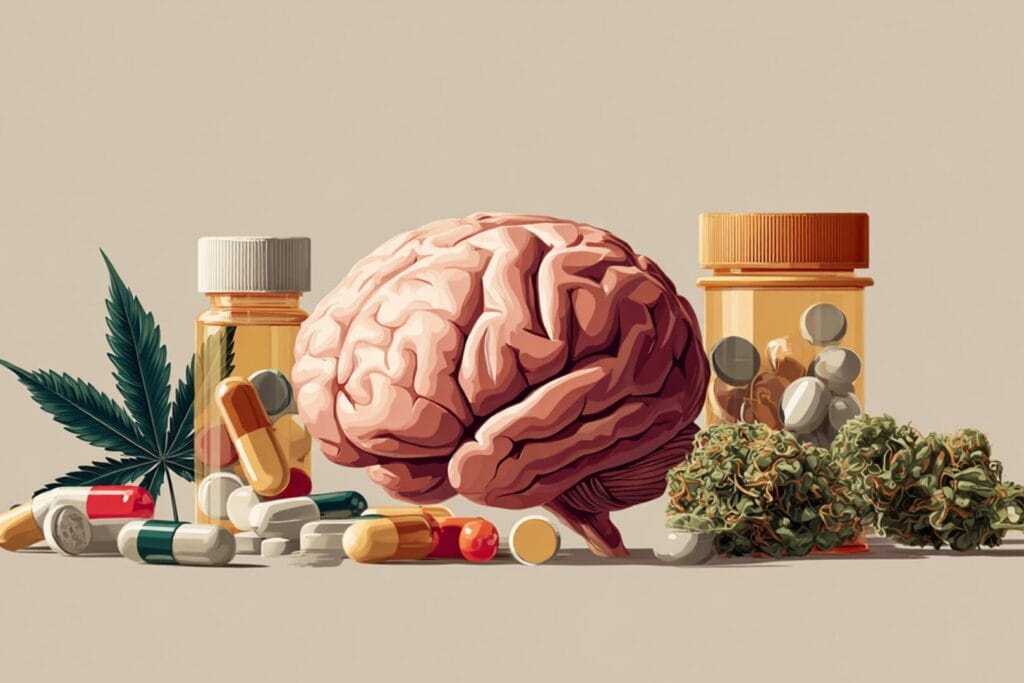What is an Opiate Overdose?
Opiate drugs fall into several categories, including prescription and illicit drugs. Therefore, it is not uncommon for someone to experience opiate overdose symptoms even though they use a medication prescribed to them by a medical provider. All opiate and opioid drugs are potent drugs with a high potential for addiction and fatal overdose. Therefore, if you or a loved one struggles with an addiction to opiates, it is crucial to seek help at a detox and treatment program like San Diego Detox Center.
Opiate Overdose Statistics
Data released by the Centers for Disease Control and Prevention in early 2020 suggest that more than 70% of the drug overdose deaths in the United States in 2019 involved at least one opiate drug. Also, the rate of death attributed to the misuse of synthetic opiate drugs increased by nearly 20% in the last year. The overall fatality rate linked to all opiate drugs increased by approximately 6%. Between 2010 and 2020, more than half a million people lost their lives to opiate drug overdose.1
Opiate vs. Opioid: What is the Difference?
Opioid drugs are derived from three sources. Opioids are either all-natural, synthetic, or semi-synthetic. The term opiate refers to natural opioids. Perhaps, it is best to understand the term opiate as a subcategory of opioids.2 Someone with an opiate addiction may be addicted to prescription pain medications such as oxycodone or codeine or illegal opioids like heroin.2
Signs and Symptoms of Opiate Overdose
A crucial part of opiate overdose prevention is knowing the warning signs of an overdose. In many cases, opiate overdose happens rapidly, and opiate overdose signs will differ from person to person. Some of the more common signs of opiate overdose include:3
- Slow and shallow breathing
- Vomiting
- Gurgling or choking sounds
- Constricted (pinpoint) pupils
- Blue or cold skin
- Loss of consciousness
- Faint heartbeat
- Purple lips and fingernails
- Inability to communicate or speak clearly or effectively
Opiate Overdose Causes and Risk Factors
An opiate overdose occurs when someone takes too much of a drug and elevated amounts of the substance reach their brain. When this happens, it overwhelms the brain’s natural function leading to the inability of the brain and central nervous system to perform vital functions such as breathing. Because medical providers use opiates as part of a prescription plan, many people do not realize the harms these drugs can cause.
Who Is at Risk for an Opiate Overdose?
Specific factors related to the individual using the drug may increase their risk for addiction and overdose. Examples of overdose risk factors include age and underlying medical conditions such as impaired liver function, kidney disease, or sleep apnea.4
There are many possible causes of opiate overdose. Some of the more prominent examples are combining an opiate with other drugs or alcohol, taking more than prescribed, and using illicit (street) drugs that may contain unregulated or harmful additives.3
Treatment for Opiate Addiction and Overdose in San Diego
Narcan nasal spray for opiate overdose or Narcan injections is an excellent emergency use drug used for opiate overdose. In the short-term, drugs to reverse opiate overdose can help save someone’s life. However, Narcan is not a long-term substitute for opiate addiction treatment. A professional treatment program in San Diego can help you find freedom from addiction and begin a journey towards lasting health and wellness.
Opiate Addiction Treatment Options
The best opiate addiction treatment options involve several steps. It is important to remember that achieving lasting sobriety is a highly individual process. Choosing a program that offers individualized addiction treatment plans provides the most significant opportunities for treatment success. For most, the first step of treatment is comprehensive detox.
The Benefits of Detox
Although challenging, detox is a necessary step in therapy. It is difficult (if not impossible) to focus on healing when still impacted by the effects of opiate use. Detoxing in a safe and comforting environment is vital to ensuring access to the medical and mental health support you need to help manage withdrawal symptoms.
Get Help at San Diego Detox
Once detox is complete, you will begin therapy to learn more about the root causes of addiction and how to manage relapse triggers in the future. The journey to overcoming opiate addiction is challenging. With help from our skilled, compassionate team, sobriety and a drug-free future are within reach. Contact us today to learn more about our programs and how you can get help to defeat addiction at San Diego Detox.
Narcan for Opiate Overdose
The Centers for Disease Control and Prevention (CDC) indicate that almost 50,000 people died from an opioid or opiate-related overdose in 2019. The same study suggests that in as many as 40% of cases. Had these bystanders provided Narcan, they could have saved a life. Understanding more about how Narcan helps with opiate overdose reversal can help to save thousands of lives each year.
Auto-Injector and Nasal Spray
Naloxone or Narcan is a medication that can rapidly reverse opioid overdose.
Narcan for opiate overdose comes in two FDA-approved delivery methods.4 These include an auto-injector and prepackaged nasal sprays. Narcan injections must be drawn from a vial and injected into the body. Medical providers such as emergency services personnel or emergency room doctors often choose this method.
The second delivery method of Narcan for opiate overdose is a nasal spray. Narcan nasal sprays are a needle-free option that one can spray directly into the nostril. Because nasal Narcan comes in a prepackaged form, monitoring the amount of medication administered is not necessary. Nasal Narcan is significantly easier for loved ones or bystanders to administer. It does not require formal training, knowledge of medication dosing, or the use of a needle.
How Does Narcan Reverse the Effects of an Opiate Overdose?
Narcan is a category of drug known as an opioid agonist. When used at the first sign of an opiate overdose, Narcan prevents opiate drugs from attaching to opioid receptors in the brain because the agonist binds there instead. Opioid receptors are parts of the brain that allow the chemical elements of opiate drugs to impact your body systems. Using an opiate overdose medication like Narcan helps reverse opiate drug overdose.4
Is Narcan Safe?
When used to stop an opiate overdose, Narcan helps prevent many opiate overdose symptoms; however, it is crucial to remember that the effects of Narcan are limited to a short duration. It is designed only as a drug to stop an opiate overdose. Narcan is not a medication used to treat an opioid use disorder, and it is not a replacement for comprehensive addiction treatment.
Treatment for Alcohol Use and Anxiety at San Diego Detox
One of our goals at San Diego Detox is to tailor our treatment program according to every individual’s needs. For that reason, we offer a variety of treatment programs for anxiety with alcohol use disorder. Over time, we’ve discovered that many patients benefit from a combination of treatments, especially for treating co-occurring anxiety and alcoholism. Our services for anxiety and alcohol treatment include the following:
Alcohol Detoxification
Detoxification involves the total and gradual removal of substances, in this case, alcohol, from the body. At the San Diego detox center, the detoxification process is initiated and completed under the supervision of experts. There is also close monitoring and management of any withdrawal symptoms that may develop. This would prevent alcohol panic attacks, especially in patients used to taking alcoholic drinks to calm nerves or calming drinks for anxiety.
Residential Care
In our residential program, patients receive expert care in a homely environment built to ensure every patient’s comfort. Residential care also features counseling and therapy, which are beneficial for anxiety and alcohol treatment and recovery.
Support Groups
During patients’ rehabilitation, they will have the opportunity to connect with other patients in support groups. The goal is to assist them in combating isolation, which is a significant adversary of recovery. Support groups help motivate patients and spot signs of relapse or bad habits through healthy interactions. Support groups are highly beneficial for alcohol and anxiety recovery.
For more information, help, and treatment of excessive use of alcohol and anxiety attacks, alcohol, and stress, anxiety from alcohol and anxiety while drinking, give us a call at San Diego Detox today.






